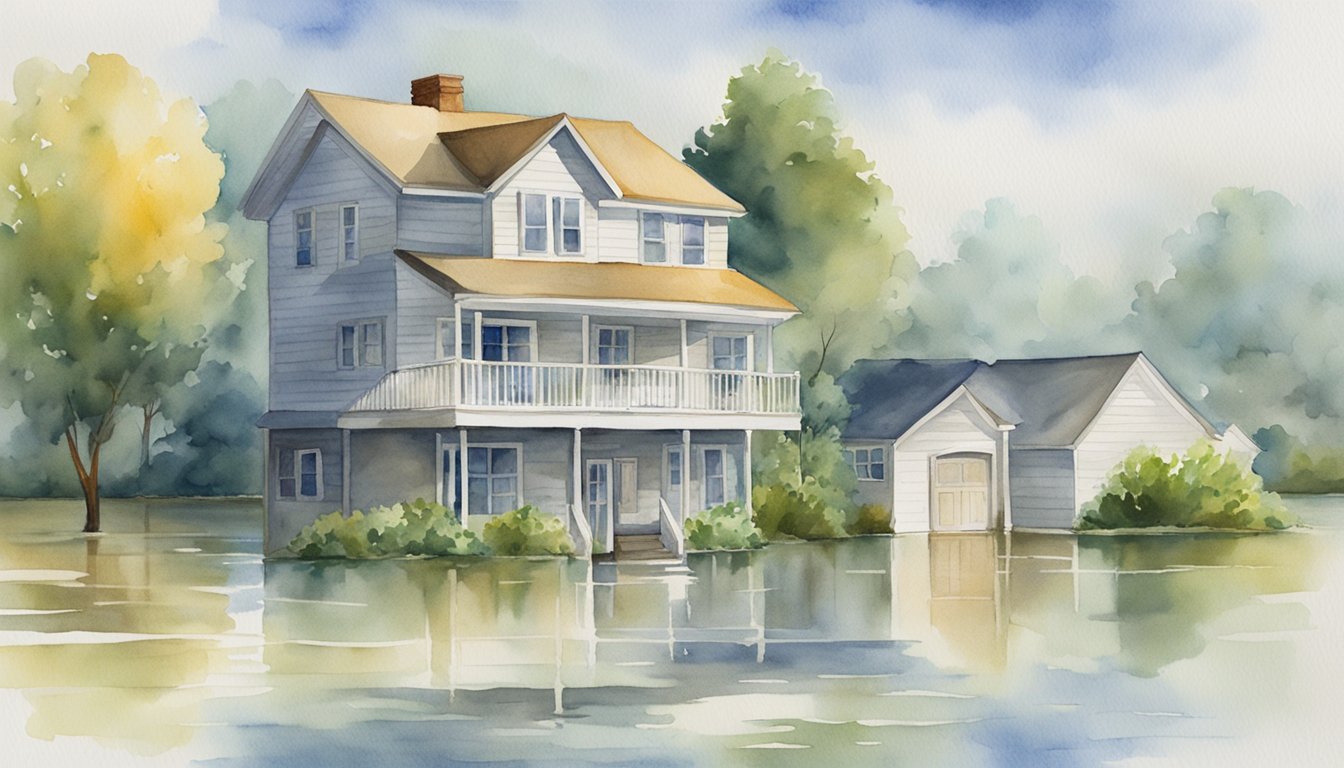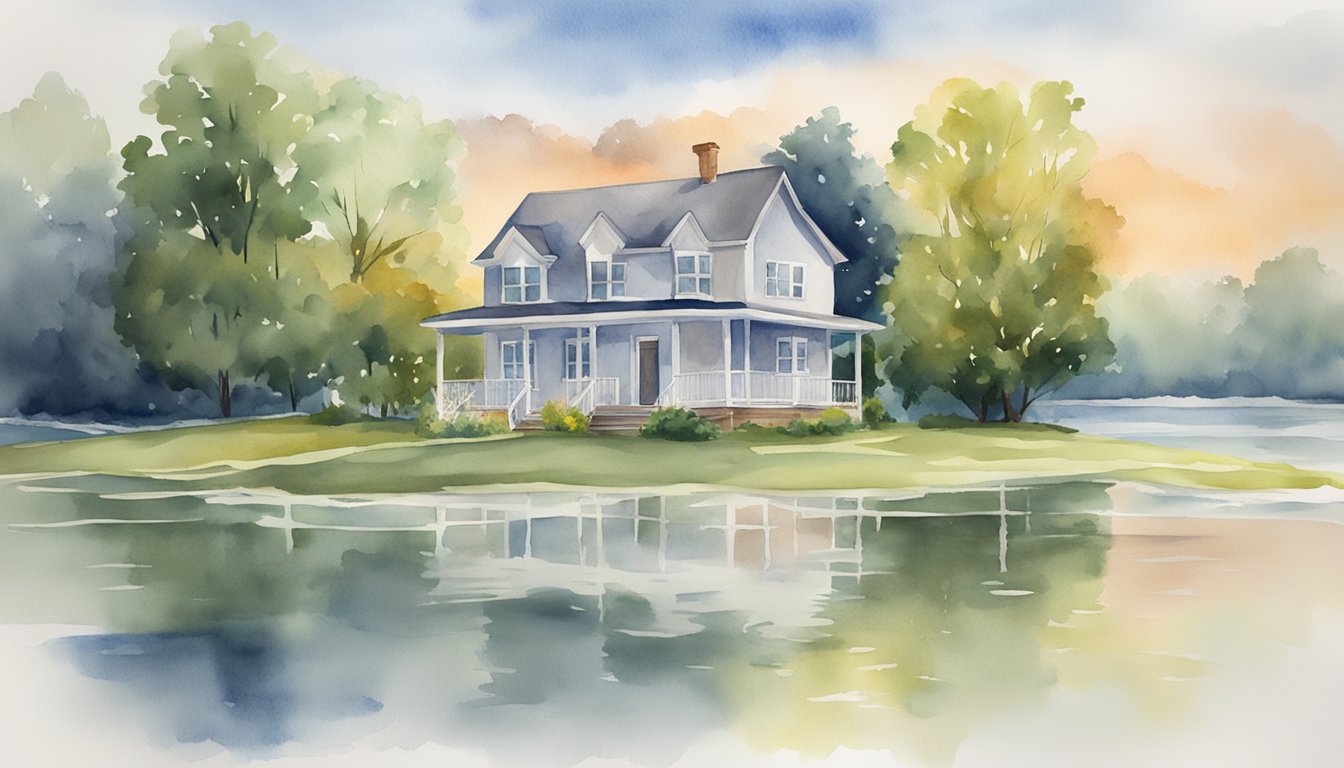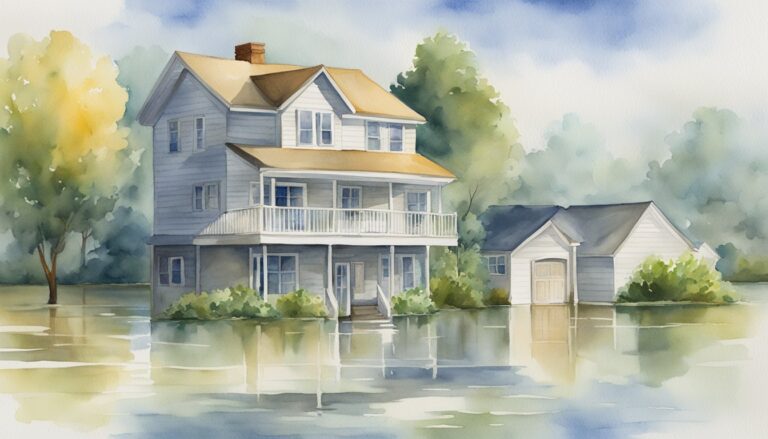What Does Flood Insurance Mean?
Flood insurance is a type of protection that covers financial losses due to flood events.
These can be caused by heavy rains, storm surges, or overflowing rivers.
Standard homeowners insurance does not cover flood damage, so having flood insurance is crucial if you live in a high-risk area.
The National Flood Insurance Program (NFIP), run by the federal government, helps provide flood insurance.
It ensures that property owners in flood-prone areas can get coverage.
The NFIP works with over 50 insurers to deliver policies to the public.
Flood zones are areas mapped by FEMA to show the flood risk.
Properties in a Special Flood Hazard Area (SFHA) are at a higher risk for flooding.
If your home is in an SFHA, your mortgage lender might require you to have flood insurance.
Coverage includes two main parts: building property and personal property. Building property coverage helps pay for damages to the structure of your home. Personal property coverage takes care of your belongings inside the house, like clothing and electronics.
Flood insurance policies have a 30-day waiting period.
This means you can’t buy it at the last minute before a potential flood.
Disaster assistance may be available after a flood, but it’s limited and often must be repaid.
Relying only on disaster assistance can leave you unprotected.
In addition to protecting you financially, having flood insurance can make it easier to get a federally backed mortgage.
Lenders often require this kind of coverage in high-risk areas.
For more detailed information, visit the National Flood Insurance Program on floodsmart.gov.
Examples of Flood Insurance in Practice
Homeowners in Flood Zones
When you own a home in a flood zone, your mortgage lender will require you to have flood insurance.
This is because federally backed mortgages demand such protection.
The insurance covers structural damage and contents.
Property Owners and Claims
If floodwaters damage your property, you can file a flood claim.
The claimant can then receive compensation for repairs and replacements.
Renters and Separate Policies
Renters also benefit from flood insurance through a separate policy.
This type usually covers personal belongings within the rental property.
Types of Flood Insurance
There are various forms of flood insurance. Homeowners insurance typically does not cover flood damage, so a specialized policy is necessary.
Residential and commercial properties have different coverage limits.
Insurance Quotes and Limits
Getting an insurance quote helps you understand potential costs and coverage.
For example, the declaration page of your policy will outline these details.
Flood Policy and Contents Coverage
A flood policy generally includes both building and contents coverage.
This means you are protected against damage to both the structure and your personal belongings.
Policyholders and Federally Backed Mortgages
For those with federally backed mortgages, flood insurance requirements are non-negotiable.
Without this, you could face penalties or lose your mortgage.
Flood Water and Damage
The damages from even an inch of flood water can be substantial.
It is crucial to have proper insurance to cover such unexpected events.
Claim Process
After a flood event, filing a claim is necessary for compensation.
This can cover the costs of repairs or replacements, easing the financial burden on property owners.
Related Terms

Flood Insurance: This type of insurance covers water damage to your property and its contents caused by flooding.
It’s important because most homeowners insurance does not cover floods.
National Flood Insurance Program (NFIP): Managed by FEMA, the NFIP provides flood insurance to homeowners, renters, and businesses.
You can learn more about it from FEMA.
Damage: Floods can cause extensive damage.
Even one inch of flood water can result in significant repair costs.
Protect: Flood insurance helps protect your property from the financial impact of floods.
Homeowners: Standard insurance policies for homeowners do not typically cover flood damage.
You need a separate flood insurance policy for that.
FEMA: The Federal Emergency Management Agency manages the NFIP, helping to provide flood insurance to those in need.
Contents: Flood insurance often covers the contents of your home, such as furniture and electronics, from water damage.
Renters: Renters can also purchase flood insurance to cover their personal belongings.
Businesses: Commercial properties can be protected with flood insurance to cover both structural and content damages.
Insurance Agent: An insurance agent can help you understand your coverage options and purchase the right flood insurance policy.
Rain: Heavy rains can lead to flooding, especially in high-risk areas.
High-risk Flood Area: Living in a high-risk flood area means your home is more likely to experience flooding, making flood insurance essential.
Water Damage: Flooding can lead to extensive water damage to your property, which can be costly to repair.
Deductible: This is the amount you pay out of pocket before your flood insurance starts covering the rest.
Assurant: Assurant is an example of an insurance company that provides flood insurance policies.
Flood Water: Even a small amount of flood water can lead to severe damage to your property and belongings.
Savings: Having flood insurance can save you from spending large amounts of money on repairs.
Catastrophe Insurance: This type of insurance covers significant, widespread damages often caused by natural disasters like floods.
Learn more about catastrophic loss.
Frequently Asked Questions

Flood insurance is critical for protecting your home and belongings from flood damage.
Understanding the details can help you make informed decisions about your coverage options.
What factors influence the cost of flood insurance?
The cost of flood insurance depends on various factors.
These include your property’s flood risk, location, age, and elevation.
Additionally, the amount and type of coverage you choose will also affect your premium.
How does the National Flood Insurance Program (NFIP) differ from private flood insurance plans?
The NFIP, managed by FEMA, provides standard flood insurance






